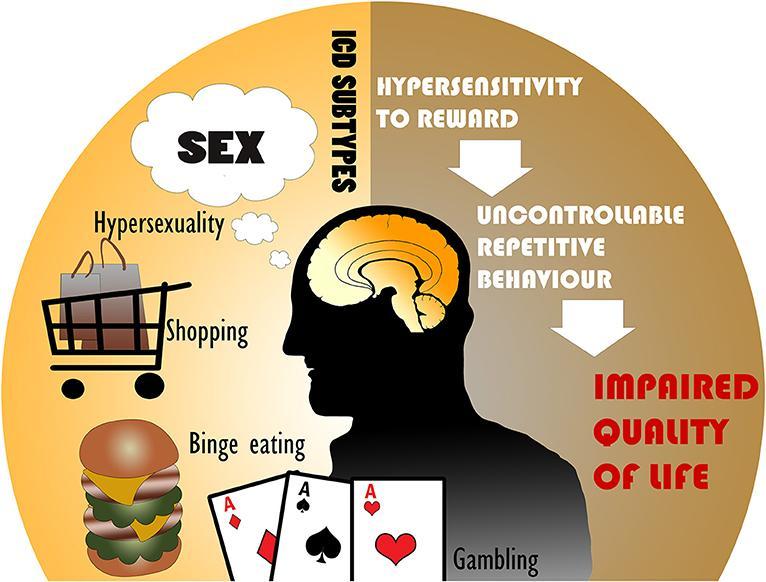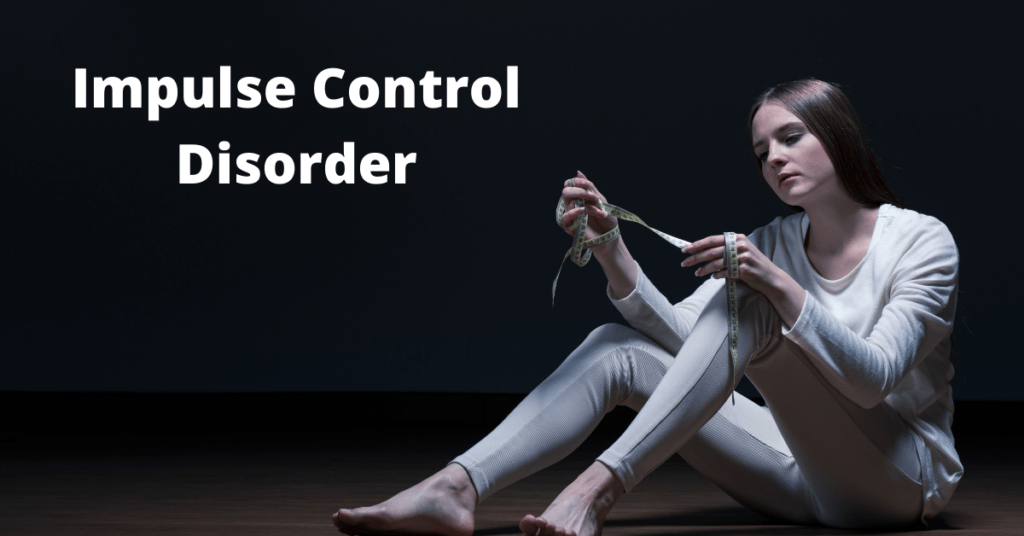Impulse control disorder is a condition that affects people of all ages, genders, and backgrounds. The condition can manifest in different ways for each person, but the root cause is always the same: lack of impulse control. In this guide, we will explore what causes Impulse Control Disorder from both a medical perspective and personal experience. We’ll also give you some tips on how to detect if someone has Impulse Control Disorder and what to do about it!
Contents
What Is Impulse Control Disorder?
 This disorder means that you have a hard time stopping yourself from doing certain things that are harmful, even when you know the harm they can cause. As such, impulse control disorders like impulse control disorder (ICD) often lead people into self-destructive behaviors with little regard for consequences in both their personal life and professional life; not only do these problems affect how you function in your jobs and in society, they can also affect your relationships with those around you.
This disorder means that you have a hard time stopping yourself from doing certain things that are harmful, even when you know the harm they can cause. As such, impulse control disorders like impulse control disorder (ICD) often lead people into self-destructive behaviors with little regard for consequences in both their personal life and professional life; not only do these problems affect how you function in your jobs and in society, they can also affect your relationships with those around you.
Impulse control disorder may be a disorder that you have never heard of before, but it is actually a fairly common problem. It is a disorder that affects the ability to control impulsive behaviors. This can lead to problems in many areas of your life such as work, school, and relationships.
This disorder means that you have a hard time stopping yourself from doing certain things that are harmful, even when you know the harm they can cause. There is no one clear reason why some people develop this disorder and others do not. In fact, it may be caused by many different factors such as genetics, brain chemistry changes or other psychiatric disorders.
This disorder can be very difficult to treat, but there are many types of treatment that can help. If you think this may apply to you or someone close to you, it is important to seek out help and find the right type of treatment for your needs.
Types of Impulse Control Disorder

There are many types of impulse control disorder, but some of the most common include:
Intermittent Explosive Disorder
This disorder is characterized by recurrent, sudden episodes of intense anger or violence that are disproportionate to the situation. It also means that these episodes are not premeditated and cannot be predicted. This disorder affects more than six million Americans, usually beginning in the late teens or early adulthood.
Intermittent Explosive Disorder is typically associated with significant problems at home, work, and school as well as relationships with other people which can lead to depression, isolation from others, and even substance abuse. In addition to potentially causing harm to yourself or others, there may also be legal consequences for your actions when they do occur due to this impulse control disorder so it is important that you get help if necessary.
Pyromania/Fire-setting Behavior
This type of behavior involves setting fires on purpose with little regard for what might happen after that point. It often begins in adolescence but most people do not seek treatment until they are adults. Pyromania is a very rare disorder and only affects around one percent of the population although it may also be linked to conduct disorder or antisocial personality disorders in some cases.
Trichotillomania/Hair-pulling Disorder
This type of behavior involves pulling out your hair on purpose with little regard for what happens after that point, often obsessively focused on this task despite any consequences from doing so such as bald patches or scabs on your head. Many people who have impulse control problems like trichotillomania will pull their hair without even realizing they’re doing it but over time can lead to noticeable changes in appearance if left untreated. This condition usually begins during childhood or adolescence.
Kleptomania/Shoplifting Behavior
This type of behavior involves stealing things from stores or other places with little regard for what might happen after that point, often feeling an irresistible urge to take something even if you don’t need it or can’t afford it. Kleptomania is also a rare disorder and only affects around two percent of the population. It usually begins in late adolescence or early adulthood.
Compulsive Gambling Disorder
This type of behavior involves gambling more money than you intended to, or gambling more frequently than you intended, with little regard for the consequences such as losing your job, going into debt, or damaging relationships because of your gambling habits. Compulsive gambling disorder typically starts in early adulthood and affects around one to two percent of the population.
Symptoms of Impulse Control Disorder

There are many signs of impulse control disorder, but some of the most common include:
Explosive Anger
This sign can be expressed as verbal outbursts, physical aggression towards objects or people, and destructive behavior such as punching walls.
Compulsive Hoarding
This sign involves having an extremely difficult time throwing away things that are essentially junk because you feel like they have some kind of value to them even if others do not see the same thing in these items. This can be dangerous for your health if it means there isn’t enough space to cook food properly without tripping over stacks of newspapers or piles of old clothes taking up all available floor space in a room.
Addiction of Behaviours or Substance Abuse
This sign can manifest in many different ways but is often associated with an inability to stop engaging in a particular behavior or using a substance, despite knowing that it’s causing harm to yourself or others. This could include eating disorders, excessive spending, drug, and alcohol abuse, and compulsive sexual behavior.
Social Anxiety
People with impulse control problems often feel like they don’t fit in with society and can become very isolated as a result. This may lead to depression and even thoughts of suicide. They may also turn to self-destructive behaviors such as cutting themselves or engaging in risky sexual behavior.
Act of Violence
This sign can include both physical and emotional acts of violence towards oneself or others. It also includes reckless and potentially harmful behaviors such as driving under the influence or taking unnecessary risks.
Risky Sexual Behaviors
This sign can include having unprotected sex, multiple partners, or exchanging sexual favors for drugs or money. It can also involve exhibitionism (exposing oneself to others) or voyeurism (watching someone else undress or have sex).
Causes of Impulse Control Disorder

There are many possible causes of impulse control disorder but some include:
Brain Injuries
These can be caused by accidents resulting in damage to the prefrontal cortex where self-control and decision-making take place. Brain injuries can also cause problems with memory, attention span, or problem-solving abilities which may make it harder for a person to resist their impulsivity.
Genetics/Family History
This sign is often associated with children who have parents who struggle with obsessive-compulsive behaviors such as hoarding or addiction to behaviors like gambling because these disorders are commonly inherited from one generation to another through genes passed down on chromosome
Environment Factors
This involves exposure to traumatic events during childhood that could trigger impulsive behavior later on in life such as abuse, neglect, or bullying. It can also be caused by chaotic or unstable home life.
Mental Illness
People with impulse control problems are often also diagnosed with another mental illness such as bipolar disorder, ADHD, or OCD. This could be because the symptoms of these illnesses can contribute to impulsive behavior or because people with mental health conditions may turn to self-destructive behaviors as a way of coping with their condition.
Epilepsy
People with epilepsy are more likely to be diagnosed with impulse control disorder because seizures in the prefrontal cortex area of the brain can trigger impulsive and violent behavior. This can be a particular problem for those who do not have full control over their seizures.
Diagnosis of Impulse Control Disorder

The diagnosis of impulse control disorder is made by a mental health professional. This is after taking into account the person’s symptoms, family history, and any other co-existing conditions. There is no single test that can help to make a diagnosis so it may require talking to the person about their thoughts, feelings, and behaviors as well as getting feedback from friends or family members.
Another method of diagnosis is to look at patterns of behavior over a period of time. This may involve keeping track of what triggers impulsive episodes and how long they last.
Another method of diagnosis is self-assessment questionnaires which can be found online. These are often free to complete and may give you a good idea of whether or not you think this is something that affects your life in any way.
Treatment For Impulse Control Disorder

There is no one-size-fits-all approach to treating impulse control disorder but some common treatments include:
Cognitive Behavioral Therapy
This type of therapy helps people learn how to identify and manage the thoughts and feelings that contribute to impulsive behavior. It can also help people develop better-coping skills so they’re less likely to turn to self-destructive behaviors in times of stress.
Medication
Some medications, such as antidepressants or antipsychotics, can help reduce symptoms of impulsivity. However, it’s important to work with a doctor to find the right medication and dosage because too much or too little could actually make the problem worse.
Education and Support
It’s important for people with impulse control disorder to have access to education and support so they can better understand their condition and learn how to manage it. This may involve attending group therapy sessions or talking to a therapist one-on-one.
Self-Care Strategies
People with impulse control disorder should also develop healthy self-care strategies such as exercise, relaxation techniques, and a balanced diet in order to help them stay calm and focused.
Some common self-care strategies include:
- Exercising regularly
- Eating a balanced diet
- Practicing relaxation techniques like yoga or meditation
- Taking breaks throughout the day to relax and de-stress
- Avoiding caffeine or other stimulants that can make symptoms worse
- Talking to a therapist about any mental health conditions you may have.
How To Prevent Impulse Control Disorder?

There are many methods that can help to prevent impulse control disorder from developing or worsening. These include:
Practicing Good Self-Care
By practicing good self-care, you can help prevent stressful episodes that could lead to impulsive behavior. This may include getting enough sleep, eating a balanced diet, and doing regular exercise as well as taking some time out for relaxing activities like meditation or yoga.
Keeping Journal
Journaling is an excellent way of monitoring your feelings on a daily basis so you can spot any patterns in your emotions that might contribute to impulsive behavior. It’s also another great method of identifying triggers before they set off an episode which makes it easier to avoid them if possible. Keeping track over the course of several weeks will give you more accurate information but even keeping one journal entry each day be helpful too.
Finding Support Online
There are many online communities where you can get support from people who understand what it’s like to live with impulse control disorder. This includes information and advice on common treatment methods as well as sharing your own experiences for others to learn from.
Keeping Track Of Your Symptoms
Some research indicates that keeping a diary of when impulsive episodes happen may help in identifying any patterns or triggers so they’re easier to avoid in the future. It might also be useful to keep track of how long the episode lasts, whether certain activities make them worse and if there is anything that helps reduce symptoms such as medication or therapy sessions. Learning more about this condition will help you feel better informed so these diaries could be invaluable when working with a doctor towards managing it.
Educating Yourself And Others
It’s also important to educate yourself and others about this condition. This is because many people who have impulse control disorder don’t seek treatment for various reasons. These are such as not knowing what help is available or fear of judgment by other people. By educating yourself on the signs and symptoms, you can identify when someone may need professional support so they’re less likely to fall through the cracks in our society where mental illness often goes untreated. Keeping an open dialogue with friends and family members will encourage them to talk openly about their experiences too which can be a great way to learn more together while helping each other out. Educating yourself means understanding how this condition affects everyone differently but there are common trends that might give you an idea of how to deal with a situation before it becomes too overwhelming.
Trying To Avoid Triggers
One of the most important things you can do to help manage impulse control disorder is to try and avoid any potential triggers. This might include avoiding stressful situations, limiting caffeine intake, or steering clear of certain people or places that tend to set off episodes. If you’re able to recognize what your personal triggers are, it makes it easier to take steps in order to avoid them which will hopefully prevent impulsive behavior from happening.
Conclusion
In conclusion, impulse control disorder can be a challenging condition to manage but there are many ways in which you can help yourself stay on track. Remember to practice good self-care, find support online and keep track of your symptoms so you can work closely with your doctor to find the best treatment plan for you. Most importantly, don’t be afraid to ask for help when you need it – there is no shame in admitting that this condition is tough to deal with sometimes.
If you are looking for affordable Online Counseling MantraCare can help: Book a trial therapy session


